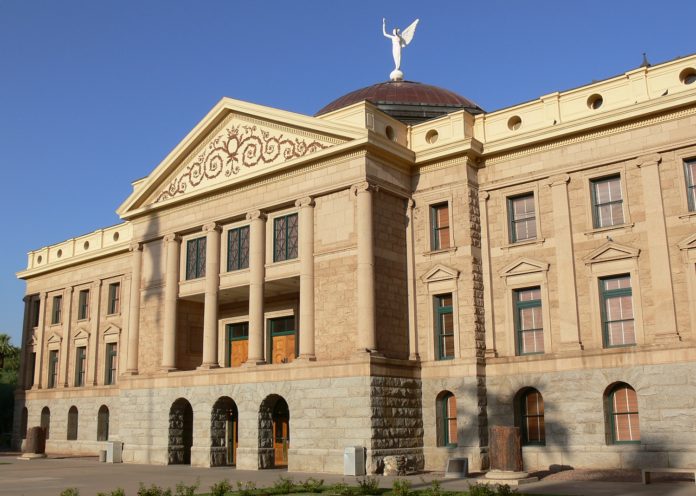
PHOENIX (AP) — Republican legislative leaders have introduced legislation to require Native American tribes in Arizona to resolve longstanding water disputes with the state before negotiating new gambling pacts.
Cosponsors of the legislation, House Bill 244 7, include House Speaker Rusty Bowers, R-Mesa, and Senate President Karen Fann, R-Prescott, the Arizona Republic reports.
The bill’s chief sponsor, Prescott Republican Rep. Steve Pierce, said it would help speed up the state’s complex and lengthy negotiations with tribes over water rights because tribes want to retain the economic benefits of gambling casinos.
“It needs to be resolved for the tribes and for the state,” Pierce said of the water disputes.
Republican Gov. Doug Ducey‘s office in recent years has been negotiating new tribal gambling compacts, potentially overhauling them.
Terms of the state’s compacts with individual tribes dictate how much gambling revenue is shared with state and local governments.
Ducey during his Jan. 13 State of the State address thanked tribal leaders for the negotiations, and said a deal was “close.”
“It’s been a give and take,” he said. “We owe it to our tribes and our citizens to get it done.”
Under the proposed water legislation, “This state may not enter into, negotiate, execute, extend or renew any tribal-state gaming compact with a tribe that is a party to litigation regarding water rights in which this state is an adverse party.”
Pierce told the Republic that he had’t heard from Ducey’s office about the water bill but that he expects initial opposition from tribes.
That’s understandable but the bill would help the tribes, Pierce said. “The sooner they get things resolved, the bills from the lawyers’ offices go down.”
Sen. Jamescita Peshlakai, D-Cameron, who is Navajo, said it’s certain the tribes will oppose the measure.
“They are going to consider it an attack on their very existence. And it really is.”
She said the issues were individually important.
“This bill would try to merge them together to address an Arizona state water crisis that the state itself has not prepared for. Each of those issues needs to be addressed on their own,” Peshlakai said.
Sarah Porter, director of the Kyl Center for Water Policy at Arizona State University’s Morrison Institute, said a problem with the bill is that tribes don’t hold all the cards in the water disputes.
“It is not really in the tribes’ power to settle,” Porter said. “They could deeply desire to settle, but there are lots of other parties and entities that have to participate.”
Porter said a tribe could have a gambling compact tied up as the parties in a water settlement wait for approval from the federal government, for example.
“This bill would change the balance of power … and give the other parties to a potential water settlement also power over tribes ability to negotiate a gaming compact,” Porter said.
Republished with the Permission of the Associated Press.












